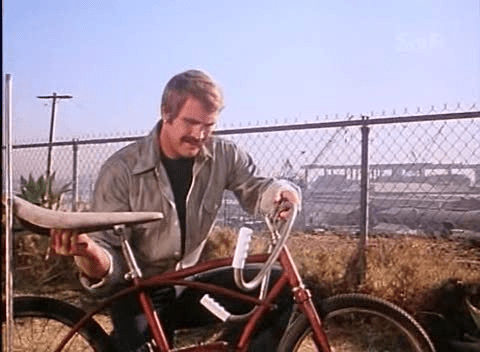“… Neil Raynsford, Accountant. Gentlemen, we can rebuild him. We have the technology to make the world’s first bionic accountant. Neil Raynsford will be that accountant. We can make him better than he was: better … stronger … faster …”
Big ask, you might say. And it was even bigger when Neil, our International Director, returned from a comfortable looking holiday, and clipped himself inside a pedal for the first time in his life. In the next two months, Neil has joined a cycling club, and embraced the initiation that is otherwise known as becoming a MAMIL (a middle aged man in lycra). Having started from a low base – he realised after his first 12 mile ride that it was “… a bit harder than he had thought …” – Neil has made spectacular progress: a successful completion (in the 4th fastest time!) of both the 28 mile Tour de Test Valley course in memory of a client, and the 41 mile New Forest Sportive Short Course. Inevitably, Neil has also undergone something of a mini-physical metamorphosis: evidently, the padding in his lycra shorts is now primarily just what he purchased …
(a pumped-up Neil Raynsford races off ahead of fellow Langdowns DFK director Bob Law)
All of which takes me on to the central theme – Bike-to-Work. With cycling undergoing something of a national resurgence, the government are offering generous tax breaks to those replacing CO2 emissions with pedal power. If an employer lends or hires a bicycle and related equipment to an employee, the benefit can be exempt from tax. What’s more, the cost of providing the benefit is tax deductible. So, employers get to recover the purchase price, usually all in the year of purchase, and recover the VAT too.
Rather than offering this is as an ‘extra’ reward to employees, employers can deal with it by way of a salary sacrifice scheme. This means that part of the employees’ salary is ‘sacrficed’ to fund the purchase of the bicycle. By so doing, it is not subjected to income tax and national insurance. Typical savings for employees are between 32% for basic rate taxpayers and 42% for high rate taxpayers, and employers can typically save 13.8% of the total value of the salary sacrificed.
The scheme is usually dealt with by a series on online administrators (e.g. cyclescheme.co.uk and bike2workscheme.co.uk) and these contain online calculators that enable both employees and employers to find out the savings based on their personal circumstances (i.e. the cost of the bike and their salary levels).
All in all, everyone wins. But a small word of warning: there are a whole load of special rules. Things like what happens when ownership of a bicycle is transferred to the employee. One other concerns the usage of the bike: although employees do not need to keep any form of mileage log, and HMRC have said they will not police the usage, employees should theoretically use the bike for work purposes at least 50% of the time. So if, like Neil, you live in Andover, and work in Eastleigh and Basingstoke, there would be a whole series of logistical issue to deal with, concerning some fairly inhospitable ‘A’ roads, never mind motorways, to meet the criteria. Realistically, a little bit of lateral thinking involving trains might be required …
But for anyone who has got an appetite for becoming the next Bradley Wiggins, bike to work might be for you!
And one final thought… Steve Austin, isn’t really concerned with bike-to-work scheme rules concerning employer responsibility for repairs, but he’s getting a head start in the DFK Movember stakes (any donations kindly received!)





